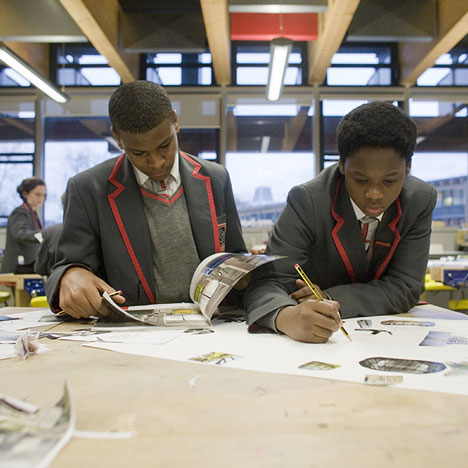
UK government backs down on plans to "demolish" creative education
News: the UK government has abandoned controversial plans that would have removed design and other creative subjects from the school curriculum, it was announced today. Campaigners who fought the plans described the move as "fantastic news" for the design industry.
Education Secretary Michael Gove admitted that proposals to introduce an English Baccalaureate (EBacc) that focusses only on maths, English, sciences, languages and a humanities subject were "a bridge too far" for secondary school students. Instead, he plans to "restore rigour" to the existing GCSE system by offering students these five subjects, plus three more that could include art or design.
"My idea that we end the competition between exam boards to offer GCSEs in core academic qualifications and have just one - wholly new - exam in each subject was just one reform too many at this time," said Gove, as he announced the U-turn.
The move has been celebrated by members of the #IncludeDesign campaign, who have been rallying against the plans and gaining support from key industry figures, including Apple's Jonathan Ive, designer Terence Conran and architect Norman Foster, as well as brands and organisations from Adobe to the Design Council.
"This is fantastic news for the whole of the design industry and creative economy," said campaign organiser Joe Mcleod. "As an industry this gives us an opportunity to work with education leaders and the government to help support the shared vision of a world-class syllabus that offers students a fully rounded education."
Mcleod, who is also a director at digital design studio ustwo, explained that the move will help to secure the future of the UK's creative industries. "Without these changes to the EBacc, we would have lost the designers, architects and creatives of the future, as their talents would have been constricted by schools being pushed to prioritise an unnecessarily narrow range of subjects that reflected the past and not the future.
"The creative industries are worth more than £60 billion a year to the UK economy and it would have been a catastrophe if creative subjects such as design and technology had been lost from schools."
The Royal Institute of British Architects (RIBA) also supported the decision, but insists that there is still work to be done to ensure creative subjects are promoted alongside the academic curriculum.
"The creative sector - including architecture - is a vital contributor to the UK economy," said RIBA president Angela Brady. "The teaching of creative subjects must be maintained to retain our creative assets and nurture future talent. However we are still concerned at the league table measures which do not include creative subjects, we will continue to lobby the Government to ensure creative subjects are not undermined."
D&AD president Neville Brody previously described the government's plans to "demolish and smash" creative education as "insanity" and told Dezeen: "The creative industries need high-quality creative graduates. If we're not getting the graduates, we’re not going to sustain the industry."
See more stories about design and education »
Photograph is by Mark Burton.